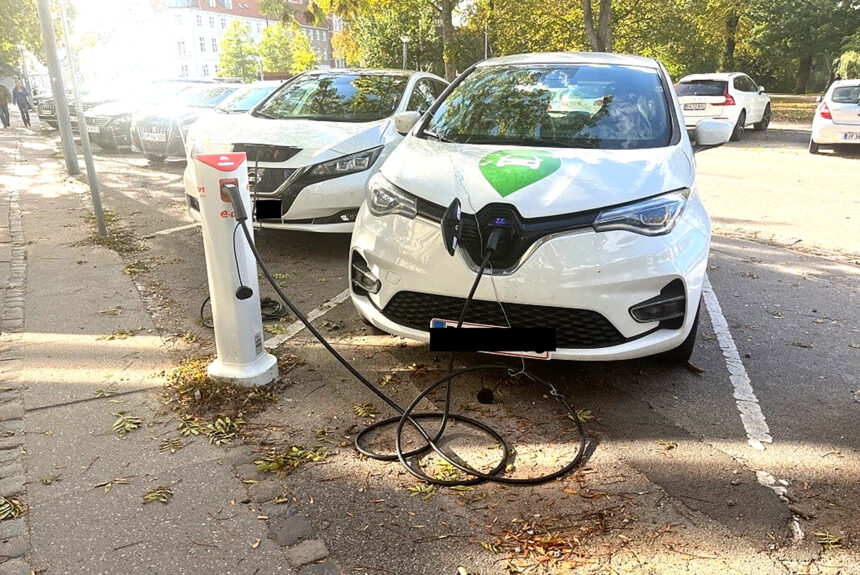The City of Windhoek is in the process of evaluating the demand for electric vehicle (EV)-charging stations, considering factors such as the current EV market size, projected growth and integration into the city’s broader transport and energy frameworks. This assessment is expected to help inform the city’s policy decisions and investment strategies to ensure infrastructure development aligns with demand.
Responding to queries from Woema, City of Windhoek spokesperson Harold Akwenye, noted that at present, the City of Windhoek does not own or operate any EV-charging stations. However, the city has recognised the growing interest in electric mobility and the need for the necessary infrastructure to support this transition. “The City is currently assessing the feasibility of establishing EV-charging stations as part of its broader strategy for sustainable urban mobility. While no definitive number has been set for 2025, we are engaging with relevant stakeholders, including private sector partners, to explore viable options,” he stated.
He elaborated that the cost of installing an EV-charging station varies depending on the type of charger (slow, fast, or ultra-fast charging) and associated infrastructure requirements. While specific figures may differ, Akwenye stated, industry estimates indicate that a standard public charging station can range between N$200 000 and N$1 million per unit, depending on capacity and location.
“While there is no official database tracking the exact number of EVs in Windhoek, industry insights suggest that adoption is still in its early stages. However, with increasing awareness, government incentives and advancements in charging infrastructure, the number of EVs is expected to grow steadily in the coming years,” he added.
Moreover, the City of Windhoek stated it remains committed to promoting sustainable mobility solutions and welcomes collaborative efforts with stakeholders to develop an efficient EV charging network.
“We will continue to engage with industry partners and regulatory bodies to ensure that our urban transport infrastructure evolves, in line with global and local sustainability goals,” Akwenye stated.
Meanwhile, African countries have been urged to join hands to make the most of their own resources and build a formidable electric vehicle ecosystem that could help fast-track realisation of SDGs. Experts believe Africa has both the opportunity and the imperative to harness its vast resources for sustainable development.
With the support from the United Nations Economic Commission for Africa (ECA) and other African institutions, it is believed Africa can leverage electric vehicles (EVs) to fast-track the achievement of the Sustainable Development Goals (SDGs), and pre-empt the risk of yet another resource curse.
In December 2024, the ECA organised a capacity-building workshop on the development of regional value chains for electric mobility in DRC, Morocco and Zambia, and a high-level policy dialogue on the development of automotive regional value chains and e-mobility in Lusaka, Zambia.
A key outcome of the workshop was a call to expedite the signing of a Memorandum of Understanding (MoU) by the three countries in 2025, and the inclusion of Morocco in the Zambia-DRC Special Economic Zone–which would be a significant step toward strengthening Africa’s e-mobility value chains.
Such collaboration would enable Zambia and DRC to build refining capacity and diversify beyond exporting raw mineral, creating higher added value, increased tax revenues and skills transfers.
Meanwhile, Morocco, aiming to produce up to 100 000 electric vehicles in 2025 and establish battery factories, would gain reliable access to strategic minerals, and position Africa as a major EV producer ready to serve even the European market.
Other African countries, including Benin, Egypt, Kenya, Nigeria, Rwanda and South Africa have the ambition to scale-up their capacity in battery production and manufacturing of electric buses, cars, motorbikes and tricycles to address local demand for affordable and greener transport.
In addition, the United Nations has noted that with nearly 30% of the world’s reserves of minerals critical to the global energy transition such as cobalt, lithium and nickel, Africa is uniquely positioned to benefit from the rapidly-rising global demand for EVs and other low-carbon technologies. When it comes to cobalt, Africa produces over 50% of global reserves and about 70% of traded quantities.
However, despite over 20 African countries holding key pieces of the e-mobility puzzle, no country can thrive in isolation. This is as infrastructure gaps, particularly in electricity-generation, storage and charging networks remain a significant challenge.
A UN report noted that African consumers are already embracing smaller EVs that offer faster returns on investment and flexible charging. This lays down a strong foundation for broader EV adoption.
“By strategic collaboration, African countries can navigate global competition, stabilise markets, prevent resource exploitation and instability, and ensure the continent reaps the full benefits of its natural wealth. Despite their varying development stages and paces, African countries should work together to reach their full potential, or risk being at the mercy of external pressures and increasingly aggressive global competition. Without unity, Africa’s vast mineral wealth could become a source of political instability rather than economic progress,” the UN report reads.



